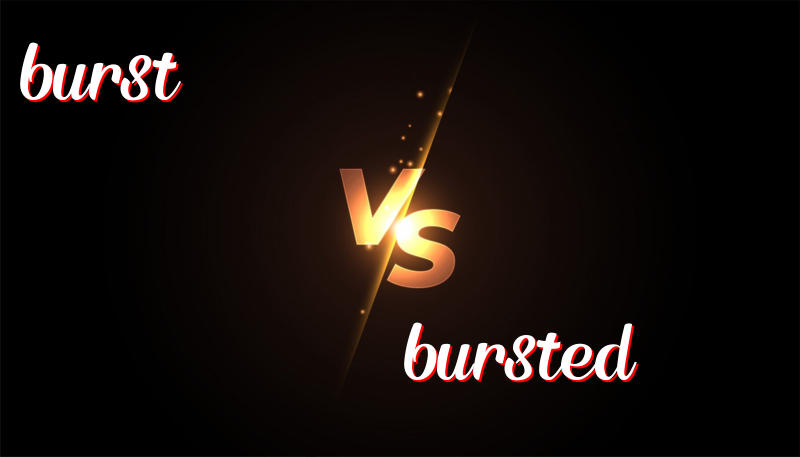Understanding the Correct Usage of Burst and Bursted
The Difference Between “Burst” and “Bursted”
The words “burst” and “bursted” both come from the action of something breaking open suddenly. But these words have a little difference in how we use them.
History
The word “burst” comes from old English and has not changed much over the years. It is the correct and traditional way to show something breaks open. “Bursted” is not a standard word. People sometimes use it by mistake, but it is not correct English.
How to Use “Burst” and “Bursted”
“Burst” is used both in the present and past tense. For example, you can say, “The balloon will burst” (future) or “The balloon burst” (past). “Bursted” is not used in standard English.
Trick to Remember the Difference
Remember: “Burst” is like “hit” or “cut.” It stays the same for past and present. “Bursted” is like a balloon idea that can’t hold air—it is not strong or correct.
Examples of Using “Burst”
- The bubble burst when I touched it.
- The dam burst and water flowed out.
- She burst into tears when she heard the news.
- The seed burst open and began to grow.
- The tire burst on the road.
Examples of Incorrect Use: “Bursted”
- He bursted the balloon. (should be burst)
- The pipe bursted last night. (should be burst)
- It bursted with excitement. (should be burst)
- The fireworks quickly bursted in the sky. (should be burst)
- The bag bursted and everything fell out. (should be burst)
Summary
“Burst” is the correct word to use in English. It works for both now and in the past. “Bursted” is not correct and should be avoided. Always remember: “Burst” is like “hit”—it doesn’t change.

Leave a Reply
You must be logged in to post a comment.